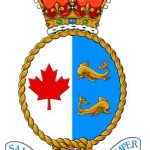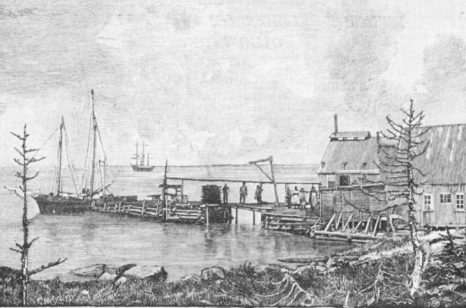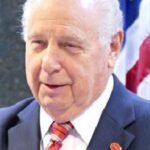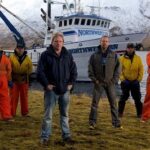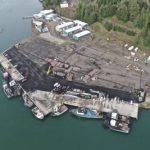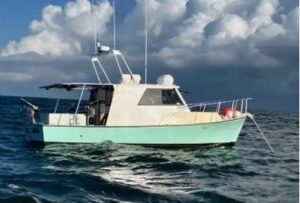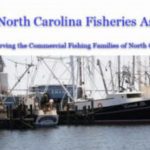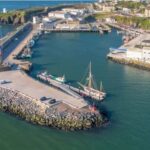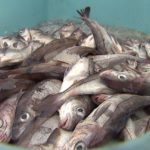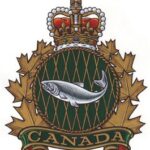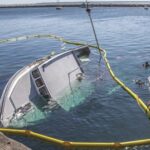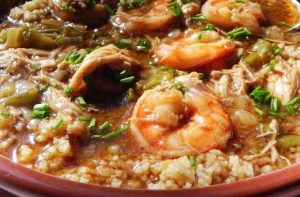FFAW’S MARCH OF MADNESS
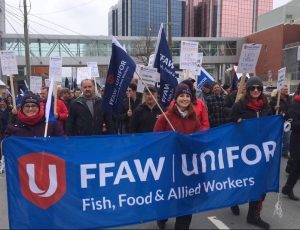
photo credit, the telegram
FOR IMMEDIATE RELEASE Thursday, March 21st, 2019
The Federation of Independent Sea Harvesters of Newfoundland and Labrador (FISH-NL) describes the FFAW-Unifor’s demonstration Wednesday through downtown St. John’s as a “march of madness.”
“FFAW supporters demonstrated to ‘fight for the future of our fisheries’ when it’s the union itself that has been threatening their survival,” says Ryan Cleary, President of FISH-NL.
Here are 20 reasons how:
1) The FFAW-Unifor is in a conflict of interest in representing inshore harvesters/plant workers/offshore trawlermen/aquaculture workers/oil tanker workers/cold storage workers/Long Harbour workers, etc.
2) The FFAW is in conflict for accepting millions of dollars a year in contracts/grants from the same federal and provincial governments (mostly federal) whose policies the union is supposed to keep in check.
3) The FFAW is in conflict for controlling quotas of fish including halibut, redfish, snow crab, and cod. The Government of Canada pays for fish science and management — not with money from Ottawa’s pocket — but from the pockets of fishermen in the form of quotas taken off the top of total allowable catches (the so-called Use of Fish policy). AND THE FFAW GIVES DFO PERMISSION TO DO IT.
4) The FFAW is in conflict of interest with its own members for holding an 800-tonne experimental redfish quota in the Gulf, while also designated (by the union itself) as the exclusive dock-side monitor.
5) The FFAW is in conflict for accepting money from the oil and gas industry (the union refuses to reveal the total). The FFAW rarely said a word publicly about seismic testing/Marine Protected Areas/the oil and gas industry’s impact on the North Atlantic until FISH-NL accused the union of being “bought and paid for.”
6) The FFAW hires and trains workers on seismic boats, while also gathering data for DFO’s scientific studies on the impact of seismic blasting.
7) The FFAW has been in conflict for accepting funds from the Canada-Newfoundland and Labrador Offshore Petroleum Board, the oil industry regulator.
8) The FFAW has refused to release detailed financial statements outlining ALL income and expenditures, including what happens with money from the controversial “shrimp fund” that inshore harvesters must pay into if they exceed their quotas.
9) The FFAW has been accused by members of manipulating meetings in such a way to divide harvesters or their fleets, or so a decision is guaranteed to go the union’s way.
10) The FFAW charges harvesters for halibut tags, caplin dues, and grading fees (on top of regular dues). The union even pitched a 5-cent-a-pound secret levy on lobsters three years ago to help “manage” that fishery, but the processing companies opposed it.
11) The FFAW continues to run sentinel (test) cod fisheries when their relevance has been questioned with the resumption of small-scale commercial fisheries. The FFAW also ran a questionable cod quality fishery this summer that continued even when the fishery closed to harvesters.
12) The FFAW owns its headquarters on 368 Hamilton Ave. with the Professional Fish Harvesters Certification Board that is supposed to be independent and arm’s-length.
13) The FFAW (through the certification board) is the gatekeeper to the fishery, but one of the most common complaints is how hard it is for young people to enter the fishery — and the union refuses to act.
14) The FFAW acted surprised when DFO announced its plan last fall to introduce the Precautionary Approach management system in the snow crab fishery — even though the union had been involved in an industry “working group.” It’s unacceptable that the FFAW has accepted that the Precautionary Approach will be implemented in the snow crab fishery when members are against it.
15) The FFAW agreed to controversial amendments to the Northwest Atlantic Fisheries Organization (NAFO) in the mid-2000s that threaten Canada’s sovereignty inside the 200-mile limit. FFAW President Keith Sullivan (and Earle McCurdy before him) regularly attends NAFO meetings around the world, but fails to speak publicly about the organization’s absolute failure to protect migratory stocks.
16) The FFAW decides which harvesters take part in halibut surveys, charges them fees, and then orders them where to sell the fish.
17) The FFAW failed to demand the principle of adjacency be included with amendments to the federal Fisheries Act so that harvesters are the primary beneficiaries of adjacent stocks.
18) Former FFAW secretary-treasurer Reg Anstey was quietly appointed earlier this year to the Fish Processing Licensing Board, which would also make recommendations on outside buyers that the FFAW is against.
19) The FFAW — through the Groundfish Industry Development Council — developed the 2016/17 northern cod management plans, which included the introduction of weekly quotas. Harvesters were not consulted.
20) In March 2016, the Supreme Court of Newfoundland and Labrador ruled in favour of 76 scallop fishermen who took the FFAW to court over a compensation fund for lost fishing grounds. The lawyer for the harvesters said the union “lied and misled” members.
“It’s obvious the FFAW-Unifor is not fighting for the future of the fishery, so much as the future of the union itself,” said Cleary, who’s calling on the media to dig deeper into
the problems plaguing the NL fishery.
Contact: Ryan Cleary 682 4862

































